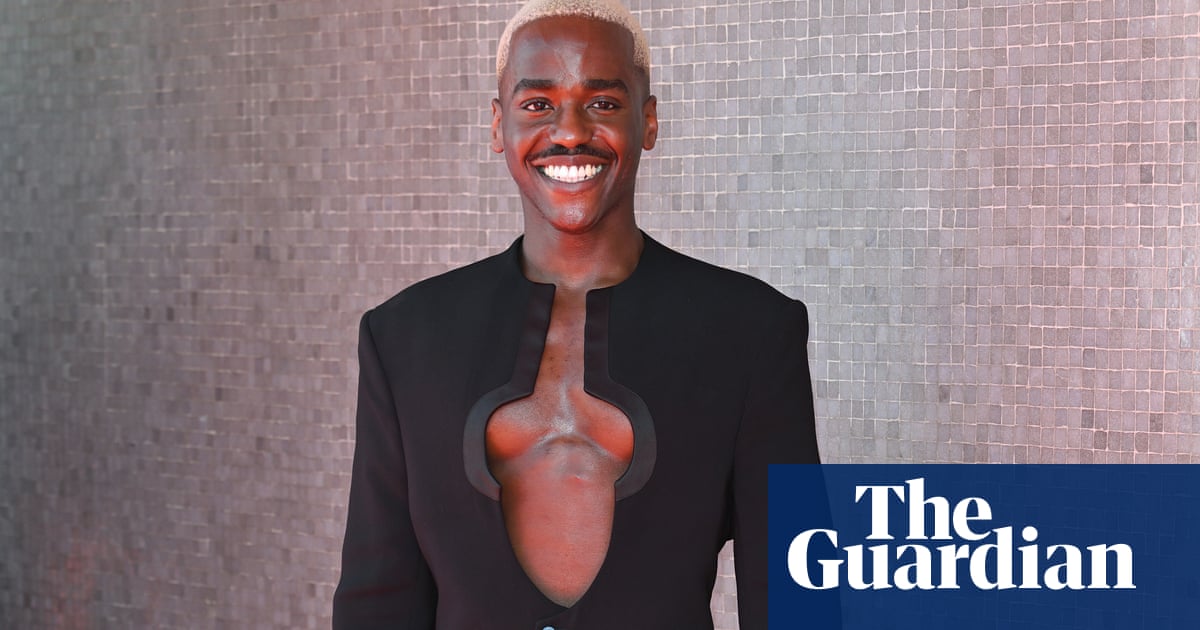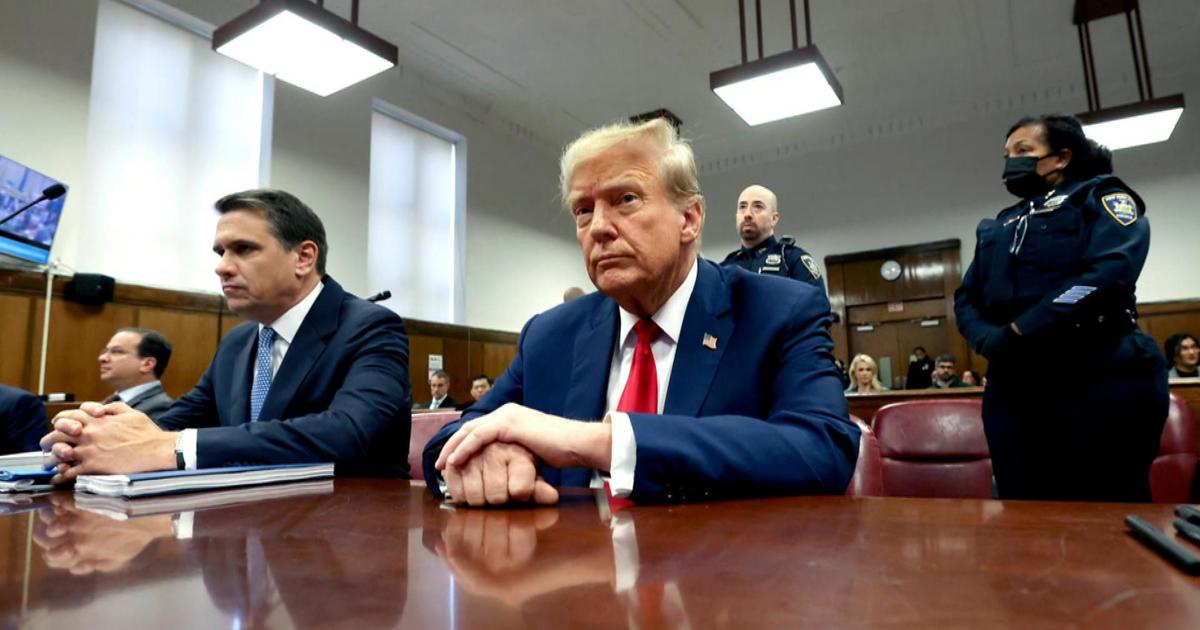
‘It’s a massive moment’: how Ncuti Gatwa will shake up Doctor Who
Doctor Who changes lives. For science fiction writer Tade Thompson, an episode from his childhood was so scary that it went on to inspire one of his books several decades later. Jenny Colgan was such a fan that even boys couldn’t get in the way of her eventually writing Doctor Who novels. And as the first black director of a Who episode, Mark Tonderai still remembers the huge sense of responsibility he felt handling its Rosa Parks storyline. Now it’s about to change the life of Ncuti Gatwa, the first black male to be cast as the Doctor. What do our panel make of the news – and how might it change the show?
‘He can pull off the mercurial madcap nature of the Doctor’
Tade Thompson
The first thing we have to note when talking about the first black Doctor is that we’ve already had Jo Martin as the Fugitive Doctor and we can’t remove the fact of her being a black Doctor. The second thing to say is that casting Ncuti Gatwa is an inspired choice. There will always be people upset by a black Doctor, saying it’s persity hiring or an attempt to be woke, but to anyone who says that I would say: just watch Sex Education. Then you’ll understand that Gatwa will make a fantastic Time Lord because he can pull off the mercurial madcap nature required. He has the energy and the physicality and he brings youth to the role. Plus he will be coming with young fans already. I’m happy to stick my neck out and say that he will go down as many people’s favourite Doctor for a long time to come.
Now I have to be upfront and tell you here: Tom Baker is always going to be my favourite Doctor. I have a theory – completely unproven – that whoever is the Doctor when you are between the ages of five and 10 becomes your favourite and so, for me, I measure every Doctor against Tom Baker. I still remember where I was when the Doctor regenerated as him: I was hiding behind the sofa. That’s normally how I watched the show, covering my face and through my fingers.

Watching Doctor Who as a kid inspired my own science fiction writing in every way. I remember one episode, The Seeds of Doom, where a giant plant was slowly growing outside this building. People were trapped inside and the vegetation was breaking its way in. I think you can see the link from that to parts of the second book in my Wormwood trilogy, Rosewater Insurrection. That fear has never left me. My wife will tell you that I still don’t encourage anything to grow in our garden.
It didn’t bother me growing up that the Doctor was always a white man. I know people talk about role models and being able to see themselves in characters but for me that’s never been tied to race – it’s always been about the qualities of the character. But when you include someone with a perspective that hasn’t been seen before, it will always expand the view.
I also expect it to expand the secondary media that comes with Doctor Who: the comics, the novelisations, even the fan fiction will change. The idea of having a regular black Doctor has already been explored in fan fiction. Maybe having a black Doctor will open up new storylines, although when it comes to science fiction we’ve never been limited by anything. The limit is the writer’s imagination.
Casting Gatwa will undoubtedly bring an added flavour to Doctor Who fans around the world. I remember in the 70s and 80s when black actors were completely disposable. In sci-fi and horror there was an unwritten rule that the black character always dies first. It makes you begin to question the humanity of those characters. Are they real? They die so early that you don’t get exposed to, say, their problem solving and so on. Having this longer exposure is so important. Although we will know when true equality has been reached because that will be the day when having a black Doctor is no longer newsworthy.
Tade Thompson is a science fiction novelist.
‘A good Doctor needs to give the impression they’re an alien’
Jenny Colgan
It really helps if a new Doctor can give you, when needed, the absolute impression that they’re not an earthly being at all, that they’re hundreds of years old, and an alien. Matt Smith was fantastic at it; he was a tremendously alien Doctor. Peter Capaldi always intimated there was more behind his eyes than he let on. And I think Ncuti will do the same. That otherworldliness is paramount to a great Doctor.
Ncuti also brings charisma. A new Doctor needs massive, enveloping charisma that will make you follow them anywhere, and on all good accounts he absolutely has it. Russell and his team are wonderful casters – people always forget that David Tennant was seen as a mistake at the time, far too young, and look how wrong everyone was about that.
Anyone born around 1971 had huge potential to be a massive Doctor Who fan because we were about eight or nine years old when the Douglas Adams/Tom Baker massive was going on. So I got sucked in then and just adored it for ever. Well, I say for ever, actually it was up until about the sixth Doctor, and then boys got in the way. But I came back for the eighth and then when the TV show started up again I found I was still as much of a fan as I’d ever been.

It was never a thing to me that the Doctor was always a white man because that was the world, a bit like fish not noticing the water they swim in. White man was the default human, I didn’t even question it. So I hope casting Ncuti Gatwa is a massive moment. My mildly optimistic sense is that people are trying to get outraged at people being outraged, but apart from your usual crazed racists in the comments section, most people don’t really have a view one way or the other; they’re just excited to watch the show. And I am delighted that the Dundee Rep holds up its amazing hit rate on casting future Doctors.
Even since I started writing tie-ins for the show, in 2011, they have come on in leaps and bounds in terms of persifying the writing team and that can only be a good thing; new young writers coming up are going to be really exciting to watch, and literally the world’s best writer for TV being in charge of the show is even better. It’s also important to remember that the lovely thing about Doctor Who is being able to go anywhere in time and space – which means the storylines are always infinite.
Jenny Colgan is a novelist who has written for the Doctor Who line of stories.
‘The show should lean into his experiences as a black person’
Mark Tonderai
I think it’s fantastic this kid has got there. He’s got real charisma. I just hope they lean into his experiences. Because the way I interface with the world and the way a white person interfaces with the world is going to be different. That’s just a fact. Certain things are different for us. So, for me, there’s no point having a black Doctor who might as well just be white. There are opportunities to expand what happens on the show now. I’m not talking about navel-gazing discourses on race – this is Saturday evening family viewing. But I am saying that the discourse can be deeper if we want it to be.
I try to do that in all of my work. Put those little tidbits in. Like getting a taxi: even now, in London, I will ask my wife to go out and get the taxi. Those little details about how we interact with the world are important. And my experience working on Doctor Who is that they will listen to him, because they’re a really good bunch over there.
When we did the Rosa episode [which centred around Rosa Parks and the Montgomery bus boycott], I said to the showrunner Chris Chibnall that we shouldn’t be seen to be going back in time and leading Rosa down these paths because that would be abhorrent. And he said, yes, absolutely. He’s a lovely man with a big heart and he really took things on board. There’s a bit at the end where the Doctor shows everyone the asteroid named after Rosa. Originally there was going to be a JFK and a Gandhi one too. And I said to Chris, with all respect, those other people are important but they don’t hold a candle to Rosa Parks for black people. And what I loved was he went, “OK, cool,” and he lent into my experience of being black and having to deal with this stuff.
Now that black people are “cool”, we are getting opportunities which we never had before – in revisionist stuff like Bridgerton or straight-up historical stuff like 1883. There are lots of opportunities happening and I love that. But my big thing, if I’m being really honest, is that we are seeing a lot of black talent in front of the camera, but less of it on the other side. For me this is the real key. I’m usually the only black person on the floor and I don’t think that’s good enough any more. I want to see more black and female focus pullers, more black and female grips, more black and female best boys … and more black and female directors and producers and writers. Because then we’re making real change. At the moment having us as the faces that sell the work isn’t good enough. We have to own the work. It has been happening in football for years: all these great black football players but just the one manager? So ultimately, to know things have really changed, I want to see a high-powered black showrunner on Doctor Who.
Mark Tonderai directed the Doctor Who episodes The Ghost Monument and Rosa.





































































